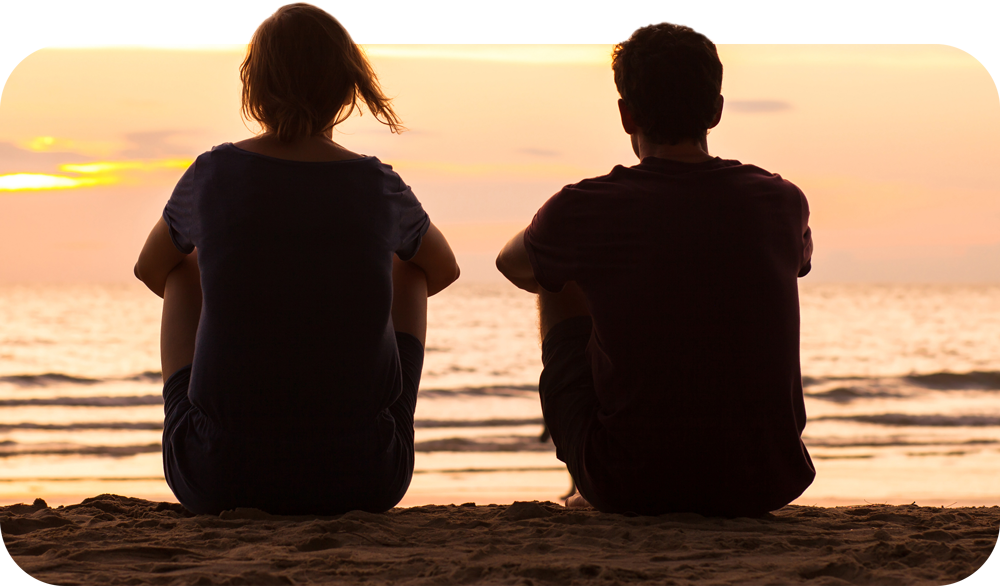Young people and domestic abuse
Recognise the signs of an unhealthy relationship and what you can do to get help

Young people experience the highest rates of domestic abuse of any age group. If you are 16 or over and have suffered one or more incidents of controlling or threatening behaviour or assault by a boy or girlfriend or a family member, you are a victim of domestic violence.
Warning signs for young people
If you are in an abusive relationships you may experience the abusive partner:
- Constantly checking your phone or emails without permission
- Putting you down in front of others or to your face
- Trying to stop you seeing family and friends
- Mood swings and explosive temper
- Possessiveness and extreme jealously
- Making false accusations
- Asking you to take part in ‘sexting’
- Making you have sex without consent
- Making you watch pornography or filming you having sex
- Telling you what you can or cannot wear and where you can or cannot go
- Physically hurting you in any way
- Saying they will hurt themselves or someone else if you do not do something
Young people at risk
Heterosexual and young people who identify as LGBTQ can experience similar patterns of Domestic Abuse, there are however some specific issues that are unique to LGBTQ victims.
- Threats to disclose your sexual orientation, or ‘out’ you to family, friends or work colleagues.
- Increased isolation because of factors such as lack of family support.
- Limiting or controlling access to spaces or networks relevant to the LGBTQ community.
- Poor experience or believing there are no services available.
- Withholding medication or preventing treatment needed to express your gender identity.
- Targeting areas of your body where you may have had surgery during physical assaults.
- Refusing to use your correct pronouns.
- Telling others about your Trans background or identity.
(reference: Crime Survey for England and Wales: year ending March 2018 Stats): The % of gay men (5.1%) or bisexual men (5.6%) who experienced abuse from a partner in 2017/2018 is double the number for heterosexual men (2.2%)
Talking about it
For parents and carers
The NSPCC provide information and advice for any adult concerned about the safety or wellbeing of a child.
Young Minds also have lots of information if you think a young person has witnessed or experienced abuse or domestic violence.
Find out how we can help you and how you can get in touch.
Myths and misconceptions about domestic abuse
They do not hit me so it is not abuse
Find out more about the different types of abuse.
Alcohol and drugs make people more violent
All couples argue – it’s not domestic abuse, it is just a normal relationship
Find out more about Recognising unhealthy relationships.
Domestic abuse always involves physical or sexual violence
Other abusive behaviours include:
- Coercive control
- Psychological abuse
- Financial or economic control
- Emotional abuse
- Harassment
- Stalking
- Online or digital abuse
Only women experience domestic abuse
Domestic abuse is a rare occurrence
Domestic abuse is often a one-off incident
People experiencing abuse often provoke assaults and therefore “ask for it.”
An abusive relationship does not always affect the children
Domestic abuse is a private matter that others should not get involved in.
If you or someone you know is experiencing domestic abuse phone 0800 69 49 999.
In an emergency you should always dial 999, if you are unable to speak because you are worried you will be overheard you can press 55 and the operator will know that you need assistance.
More information
Directory of additional support services
Somerset Domestic Abuse Service is Somerset’s main specialist service which provides support to men, women and children who are affected by domestic abuse.
Find other local and national services that can provide you with extra support.
Contact us
Call us
8am to 8pm
7 days a week
0800 69 49 999
Emergencies
If you or someone you know is in immediate danger, please call the Police
